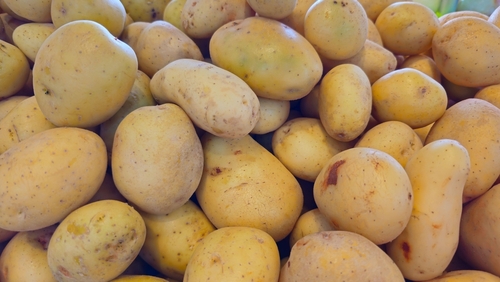Climate-ready crops: potato yield boosted by 30% under heatwave conditions
- Like
- Digg
- Del
- Tumblr
- VKontakte
- Buffer
- Love This
- Odnoklassniki
- Meneame
- Blogger
- Amazon
- Yahoo Mail
- Gmail
- AOL
- Newsvine
- HackerNews
- Evernote
- MySpace
- Mail.ru
- Viadeo
- Line
- Comments
- Yummly
- SMS
- Viber
- Telegram
- Subscribe
- Skype
- Facebook Messenger
- Kakao
- LiveJournal
- Yammer
- Edgar
- Fintel
- Mix
- Instapaper
- Copy Link
Posted: 4 December 2024 | Ian Westcott | No comments yet
Scientists at the University of Illinois have engineered potatoes to increase tuber mass by 30 percent during heatwaves, offering hope for food security in a warming world.


A pioneering study from the Carl R. Woese Institute for Genomic Biology at the University of Illinois has demonstrated how genetic engineering can make potatoes more resilient to the impacts of climate change. By introducing a photorespiratory bypass, researchers increased tuber mass by 30 percent during a record-breaking heatwave, paving the way for climate-ready crops to address global food security challenges.
How photorespiration limits crop yields and the breakthrough to overcome it
Photorespiration is a process that reduces crop yields by up to 40 percent, especially under high temperatures. It occurs when the enzyme Rubisco reacts with oxygen instead of carbon dioxide, producing a toxic byproduct that plants expend energy to metabolise. The team, led by Katherine Meacham-Hensold, aimed to bypass this inefficient pathway to maximise energy use for growth.
“We need to produce crops that can withstand more frequent and intense heatwave events if we are to secure food supplies in regions at risk from global warming,” said Meacham-Hensold, scientific project manager for the Realizing Increased Photosynthetic Efficiency (RIPE) project.
By incorporating two genes—glycolate dehydrogenase and malate synthase—into the potato’s chloroplasts, the team improved photosynthetic efficiency by keeping the metabolism of glycolate, the toxic byproduct, within the chloroplast. These modifications minimised energy loss and significantly enhanced growth under elevated temperatures.
The study, published in Global Change Biology, tested the engineered potatoes during a 2022 field season that included a severe heatwave with temperatures exceeding 38°C for several days. While unmodified potatoes struggled, the engineered plants thrived, producing more tubers without compromising nutritional quality.
Advancing food security through innovation in crop resilience
“Food security isn’t just about calorie production; it’s also about maintaining nutritional value. Our study shows it’s possible to achieve both,” explained Don Ort, Deputy Director of RIPE and Robert Emerson Professor of Plant Biology and Crop Sciences.
This innovation could benefit other staple crops, such as cassava, that are crucial for food security in Sub-Saharan Africa, where rising temperatures threaten agricultural yields. The team plans to conduct multi-location field trials to validate their findings in diverse environmental conditions.
Supported by organisations including the Bill & Melinda Gates Foundation and Gates Ag One, the RIPE project is working to create crops that convert sunlight into food more efficiently, ensuring a sustainable food supply in the face of global warming.







